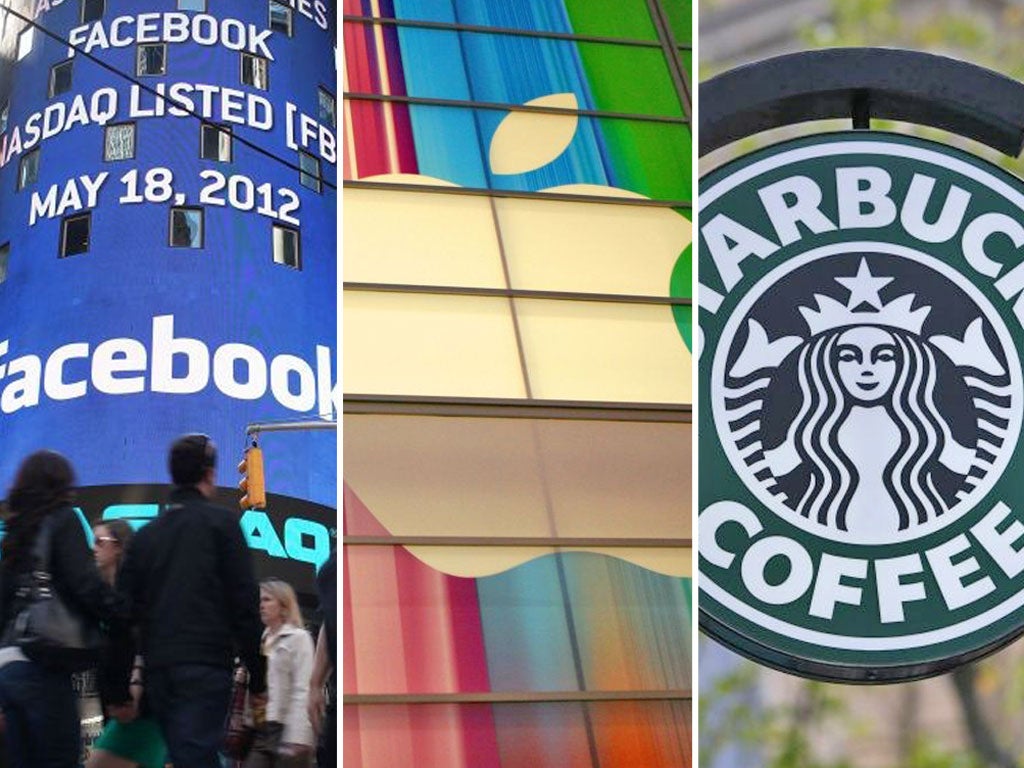Big profits, small bills: How multinationals avoid tax

Your support helps us to tell the story
From reproductive rights to climate change to Big Tech, The Independent is on the ground when the story is developing. Whether it's investigating the financials of Elon Musk's pro-Trump PAC or producing our latest documentary, 'The A Word', which shines a light on the American women fighting for reproductive rights, we know how important it is to parse out the facts from the messaging.
At such a critical moment in US history, we need reporters on the ground. Your donation allows us to keep sending journalists to speak to both sides of the story.
The Independent is trusted by Americans across the entire political spectrum. And unlike many other quality news outlets, we choose not to lock Americans out of our reporting and analysis with paywalls. We believe quality journalism should be available to everyone, paid for by those who can afford it.
Your support makes all the difference.
Mark Zuckerberg’s social network paid only £238,000 in corporation tax on UK earnings of up to £175m last year. It deployed a common scheme which saw most of its UK earnings diverted to Ireland, where its European base is located. A spokesman said: “We regularly file reports about local operations. It would be a mistake to draw conclusions from these filings.”
Google’s motto is “don’t be evil”, but the company’s friendly image was tarnished when it was revealed that it paid HMRC only £6m on a turnover of £395m last year. The company’s UK operation acts as an agent for its Irish counterpart and sees only a small percentage of the value of its own sales as a fee. The company said: “We make a substantial contribution to the UK through taxes. We comply with all the tax rules in the UK.”
Apple
This weekend accounts showed the tech giant paid less than 2 per cent tax on overseas profits. Despite foreign pre-tax earnings rising 50 per cent to $36.8bn, the company paid only £445m in corporation tax outside the US. Apple, whose CEO is Tim Cook, channels business through Ireland, which has a low rate of corporation tax. It has not commented.
Vodafone
Protesters targeted the telecoms firm after a dispute with HMRC. Following talks, the company agreed it would pay £1.25bn but MPs later heard that the full bill could have exceeded £6bn. MPs branded the settlement “absurd” and criticised HMRC for “letting off” Vodafone. Demonstrators shut down Vodafone stores and interrupted a black-tie City dinner attended by former permanent secretary of HMRC Dave Hartnett.
Starbucks
The coffee chain was the subject of protests after it was reported that it has paid almost no tax in the UK since 2009. Figures showed that HMRC has only collected £8m in corporation tax from the chain in 14 years. Despite making £3bn in sales, it has posted losses year after year. But the company still continued to boast to investors of strong performances in the UK market. Starbucks has made clear that it is not breaking any rules.
Join our commenting forum
Join thought-provoking conversations, follow other Independent readers and see their replies
Comments